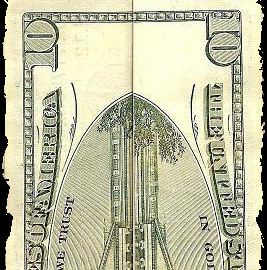The Ten Bucks Standard: What Online Content Is Worth

A New York Times piece by Andrew Rice about the economics of Internet startups gives a seemingly accurate and sad account of the state of information, which was once known as knowledge.
Irony abounds: the NYT piece was longish and informative enough that, according to its own reporting, it isn’t the kind of thing most Internet readers are looking for nor is it the kind of well-researched piece that new media can support financially.
Touring several startups like True/Slant, The Faster Times and The Awl, whose ambitious catchphrase encourages us to “Be Less Stupid”, Rice gets a good view of how new media is actually functioning rather than repeating pseudo-academic phrases about the information revolution and the death of print. What Rice found at True/Slant is that an article posted on its website, due to diluted advertising revenue across the entire Internet, is worth about $10. That’s right: $10.
It’s clear that maintaining an overseas bureau is a hard thing to pull off at $10 an article and given the ability of advertisers to direct their products to a more interested audience, e.g. a shoe company needn’t advertise in a general newspaper or magazine but rather on a niche fashion website, it’s more difficult than ever—impossible?—to report in depth on little known stories.
It’s very much a numbers game, according to Rice. The most successful startups, the most obvious being The Huffington Post, generate thousands of pieces of new content each day and write about sex and explosives and what not to attract the general reader to their site.
Ben Elowitz, co-founder of Wet Paint, has recently written on the evolving standards of quality in the news world. Elowitz says that quality is not a static characteristic, but one that evolves with a changing publishing environment. Among the metrics of quality that are no longer relevant, he says, are brand names such as NYT; accuracy—as in, are the facts correct?; objectivity and the quality of writing. When Elowitz writes that “The only limit on great content is the creators’ productivity,” it seems clear that quantity has replaced quality as a value qua values.




